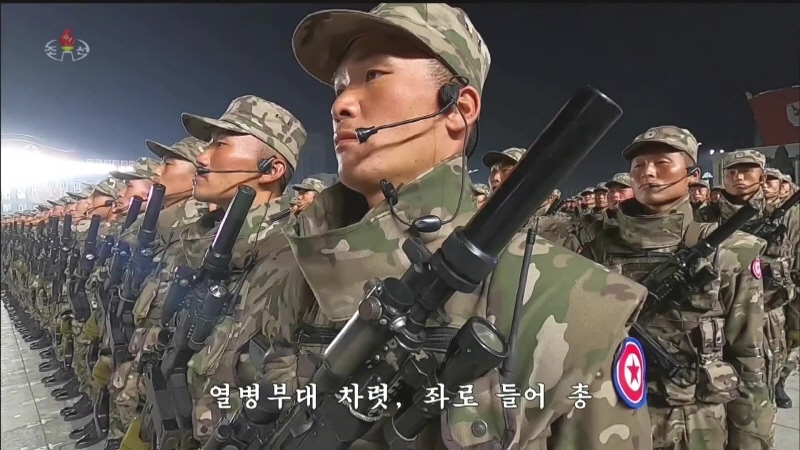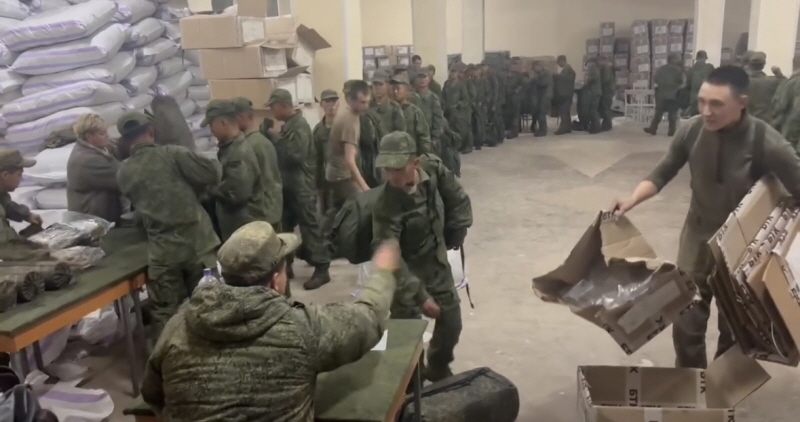South Korean and U.S. intelligence agencies have confirmed the deployment of North Korean troops to the Ukrainian front lines, revealing that many of these soldiers are being sent into battle with minimal ability to communicate with their Russian counterparts.
The National Intelligence Service (NIS) noted that while North Korean and Russian military authorities are reportedly engaging in “intensive language tutoring” to facilitate communication, North Korean troops are still struggling with basic military terminology.
This has sparked concerns that, if deployed with Russian commanders and armed with Russian equipment, significant casualties among North Korean troops could become a reality.

According to government officials and defectors, the majority of North Korean soldiers sent to the Ukrainian battlefield have received little to no formal training in the Russian language beyond basic commands.
Most of these troops are in their late teens to early twenties and belong to a generation that has not received substantial Russian language education. While Russian was once a prominent foreign language in North Korea, its instruction declined sharply following the collapse of the Soviet Union in the 1990s.
The Ministry of Unification reports that English is currently the only mandatory foreign language taught in North Korean elementary and secondary schools. A Ministry official explained, “While English is taught from fourth grade onwards, Russian is no longer part of the curriculum.”
A high-ranking defector, speaking on condition of anonymity, stated to JoongAng Ilbo, an affiliate with the Korea Daily, “Russian language education was part of the curriculum in middle and high schools, but it largely disappeared during the ‘Arduous March’ after the collapse of the Eastern Bloc.”
The defector added that by the late 1990s, even specialized institutions like the Pyongyang University of Foreign Studies saw their Russian programs shrink significantly.
South Korean National Assemblyman Park Chung-kwon, a member of the People Power Party born in 1986, noted, “By the mid-to-late 1990s, English had already become dominant in North Korea’s foreign language education. The proportion of students learning Russian was likely less than 10%.”

This language gap suggests that Russian military authorities face challenges in finding North Korean troops or interpreters fluent in Russian. The NIS briefing to the National Assembly’s Intelligence Committee on October 29 highlighted that “there are signs that the Russian military is actively recruiting Korean-language interpreters.”
However, despite efforts to teach North Korean troops over 100 military terms in Russian, the NIS believes they are still struggling to grasp them.
Intelligence suggests that North Korean troops sent to Russia are likely to be deployed alongside Russian forces rather than operating independently. The Defense Intelligence Agency (DIA) reported on October 30 that “integrated deployment with Russian units is likely due to language and regional challenges.”
Adding to these reports, Radio Free Asia (RFA) released footage and booklets showing Russian soldiers learning Korean phrases, such as “Hello” and “Where are you from?” to facilitate communication. A video obtained through a secret Telegram channel featured a Russian soldier expressing frustration while studying Korean.
Additionally, videos circulating on social media platform X (formerly Twitter) showed Russian soldiers learning commands like “Get down,” “Attack,” “Put down your weapon,” and “What is your rank?”

Meanwhile, reports have emerged of heavy casualties involving North Korean troops. Jonas Oman, head of the Lithuanian NGO Blue/Yellow, stated in an interview with local media that “the first clash between Ukrainian forces and a Russian unit including North Koreans occurred on October 25 in Kursk Oblast. All but one North Korean soldier were killed.” The sole survivor reportedly carried identification documents from the Buryat ethnic group.
Oman also mentioned, “Russian commanders are reportedly facing confusion due to their inability to speak Korean. The North Korean soldiers are proving to be a significant challenge for them.”
He added that there are reports indicating North Korean troops have been warned that surrendering would lead to severe repercussions for their families. Oman speculated that this initial deployment might be experimental, serving as “cannon fodder,” and if deemed successful, larger North Korean contingents could be integrated into Russian units or deployed as standalone battalions.
However, the DIA noted that there is currently no verified information to confirm these claims of North Korean casualties.
BY YEONGGYO CHUNG, YOUNGNAM KIM [kim.youngnam@koreadaily.com]




